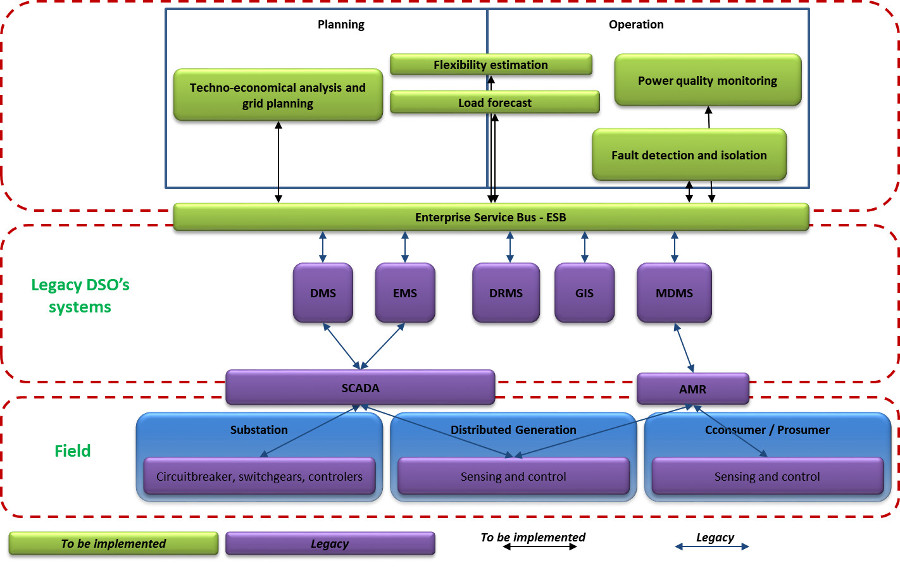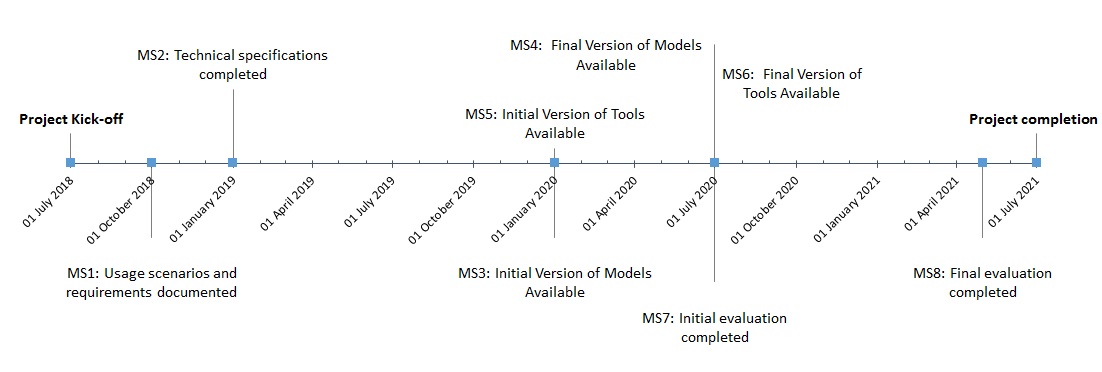Toolbox for Distribution
Systems Operators
The ever increasing penetration of distributed Renewable Energy Systems (DRES) into the
Distribution Grid entails significant challenges for the Distribution System Operators (DSOs).
Such challenges emerge due to the transition from the traditional architecture whereby power
flows from centralized production to the loads at the edges of the grid to a new paradigm
whereby bidirectional power flows appear on the lines, due to the presence of DRES. In this
context DSOs are in need of novel tools and methodologies that will enable them:
The aim of the project is to develop a toolbox that will facilitate DSOs in the fulfillment of
their tasks, both in planning and at the operational phase. In particular, the following tools
and models will be developed:
Concerns a tool for simulation and techno-economic analysis for planning the expansion and upgrade of the Distribution Grid, by defining new elements of the grid and taking into account the future load increase and the increasing introduction of DRES and storage elements at the Low Voltage grid. Also, development of models for determining the flexibility of the Distribution Grid in the light of future developments (demand response services, p2p trading, etc.) as well as spatially-focused load forecasting models.
Tools that facilitate the operation of the Distribution Grid in an emergency situation (e.g. after a permanent fault is detected) and enable real-time monitoring and assessment of the power quality of supply.
Concerns the interaction and interoperability of the project’s tools among each other as well as with widely used DSO legacy systems, on the basis of international information and communication standards.


| D1.1 Requirements Analysis |
| D1.2 Architectural design and technical specifications |
| D2.1 Initial dissemination actions. |
| D2.2 Design of innovative load forecasting models |
| D2.3 Design of innovative distribution network flexibility forecasting models |
| D2.4 Dissemination actions for models and tools of WP2 |
| D3.1 Design of tool for the operation of the Distribution Network at emergency conditions |
| D3.2 Design of tool for power quality monitoring in a Distribution Grid |
| D3.3 Dissemination actions related to tools of WP3 |
| D4.1 Definition of demonstration scenarios and key performance indicators |
| D4.2 ESB software development for integration of DSO’s tools and applications |
| D4.3 Tools development, demonstration scenarios realization and KPIs evaluation (initial version) |
| D4.4 Tools development, demonstration scenarios realization and KPIs evaluation (final version) |
| D4.5 Assessment of economic prospects and commercial exploitation of project’s results |
| D4.6 Final dissemination actions |

The project’s kick-off meeting took place at the National Technical University of Athens on the 20th of July 2018. Representatives from both partners of the consortium met for the first time and started organizing the work of upcoming months. close

The project's final event took place virtually the 16th of December, 2021. Consortium members presented the project's technical and research achievements.
The presentations of the final event are provided below:
Ilias Lamprinos
labil@intracom-telecom.com
Prof. Pavlos GEORGILAKIS
pgeorg@power.ece.ntua.gr
